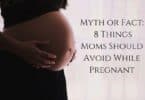If you had the opportunity to insure your unborn fetus would you?
Would you pay a premium to know that if your baby arrives with a congenital defect, your family will receive money, which could help offset medical expenses?
The insurance company ING has devised a baby policy for women aged 16 to 40 which will deliver payouts of up to 50,000 dollars (46,640 US) for babies born with Down’s syndrome, spina bifida or a cleft palate, the Sun-Herald said.
A stillborn baby could get a 10,000-dollar payout while women who suffered complications during pregnancy or birth could also be awarded a pay-out, it said.
ING spokesman Mark Vilo said the new policy allowed the company to match up with “social trends and advances in medical technology,” the paper said.
“Every woman in the process of having a child knows the risks,” he said.
“We don’t make people undergo genetic testing to find out things they don’t want to.”
“With the median age of new mums now nearly 31, (up from 27 in 1985), the risk of pregnancy complications and birth defects increases dramatically,” ING said on its website.
“For a women aged 35 or more the risk of stillborn is 1 in 440, as opposed to 1 in 1,000 for younger women.”
If this became available to North America women I would do it. Knowing that there could be a fund that would help contribute to the needs of my baby if he/she was born with issues is reassuring.
One of the biggest stress factors that parents of special needs kids have is trying to finance all of the gear their child needs.
The New South Wales Midwives Association, believes that this policy plays on the fears of pregnant women.
“It is marketing fear and uncertainty when women are vulnerable during pregnancy.”
I disagree with this association because I think that this insurance company is just being practical. Babies are born with special issues everyday.
At some point the parents will be out of pocket for a lot of extra expenses (special food, nursing, strollers, seats, equipment and alternative forms of travel). Having this would ease that stress.






